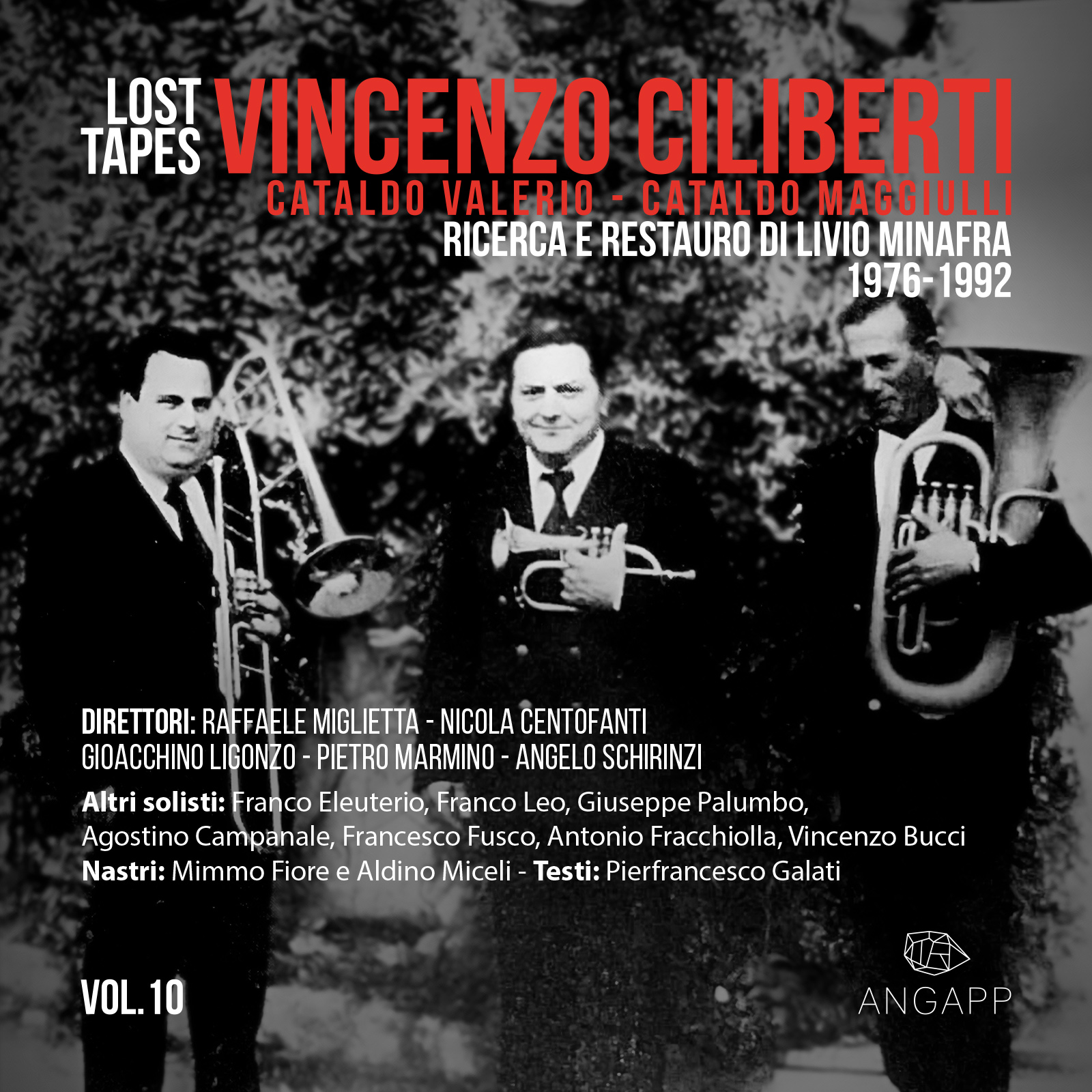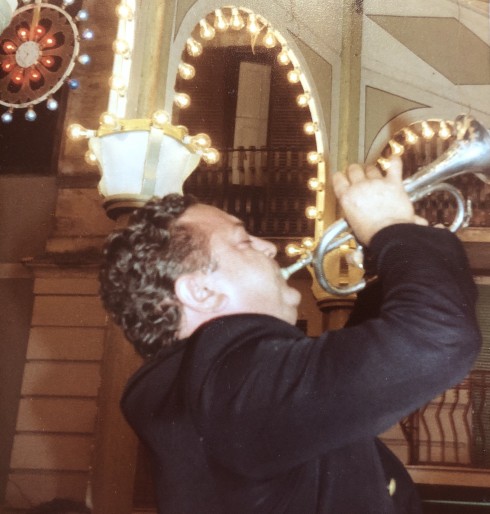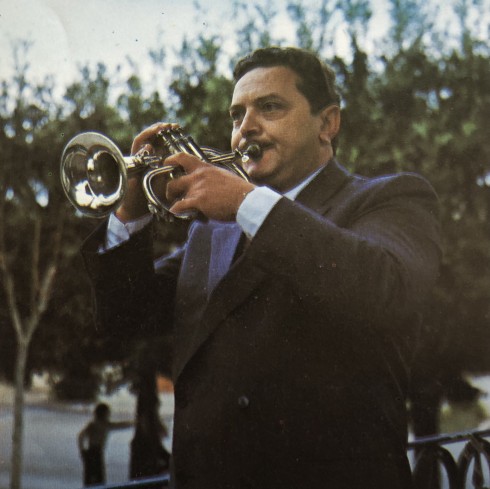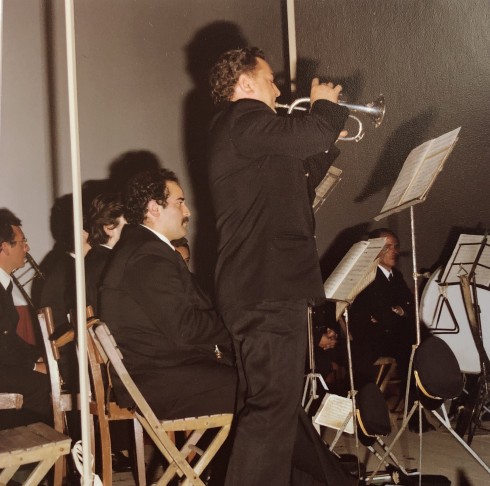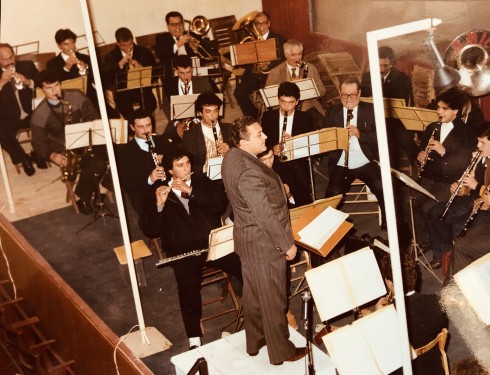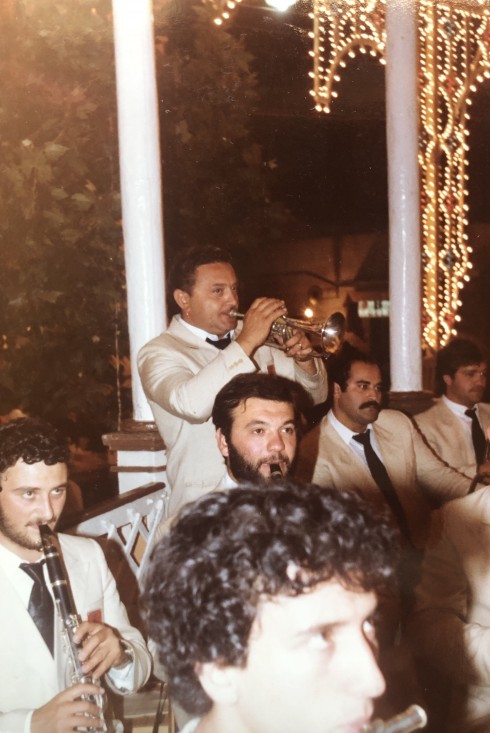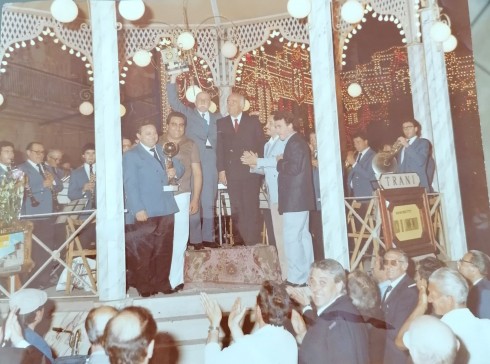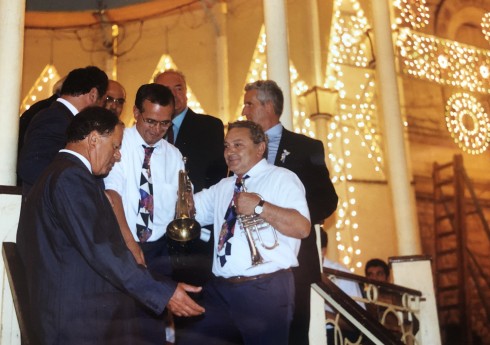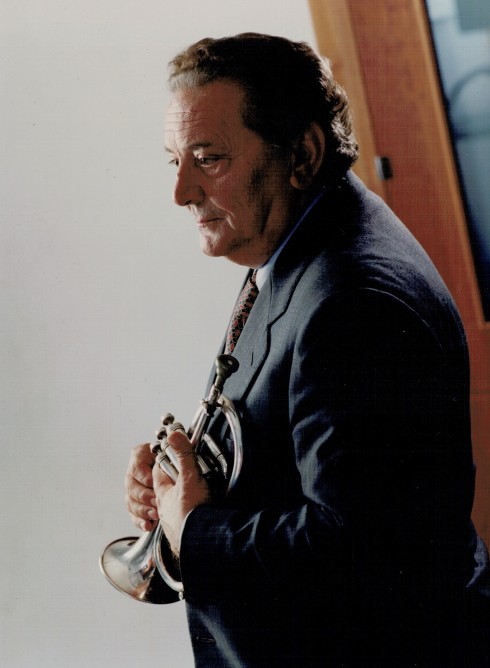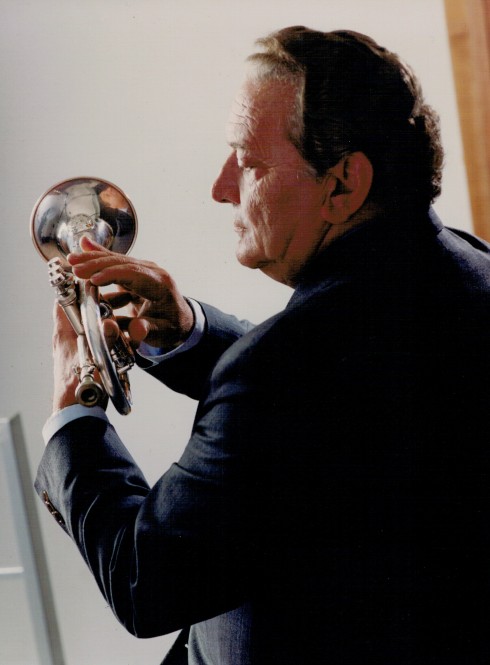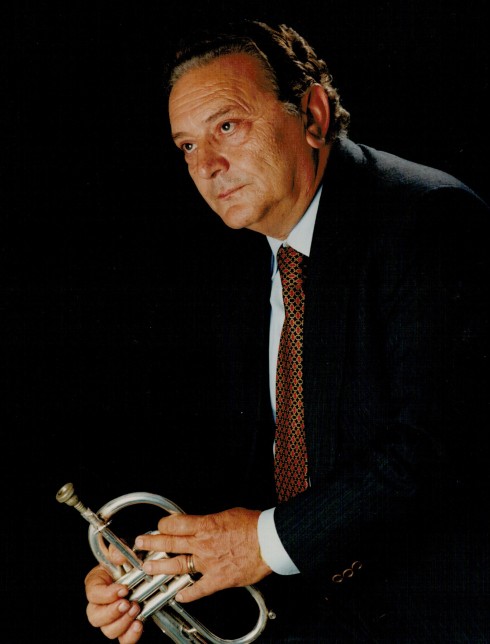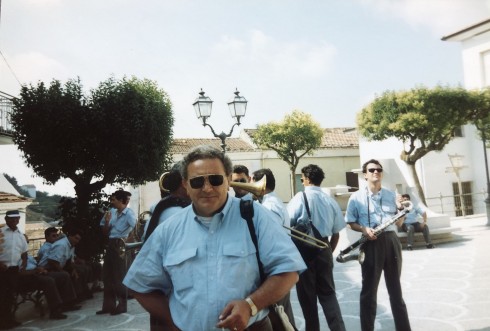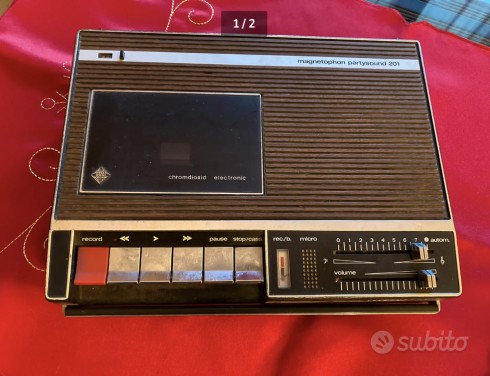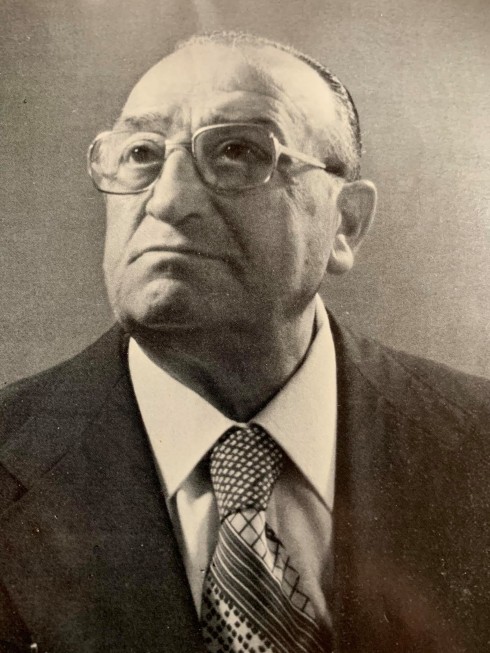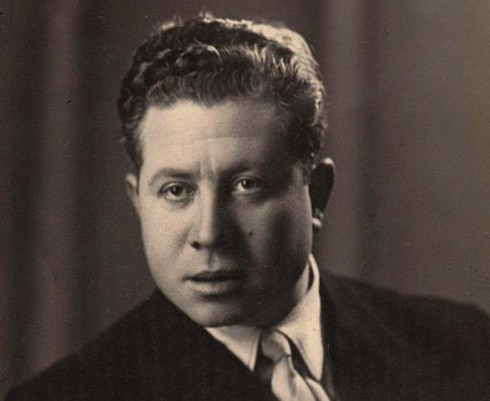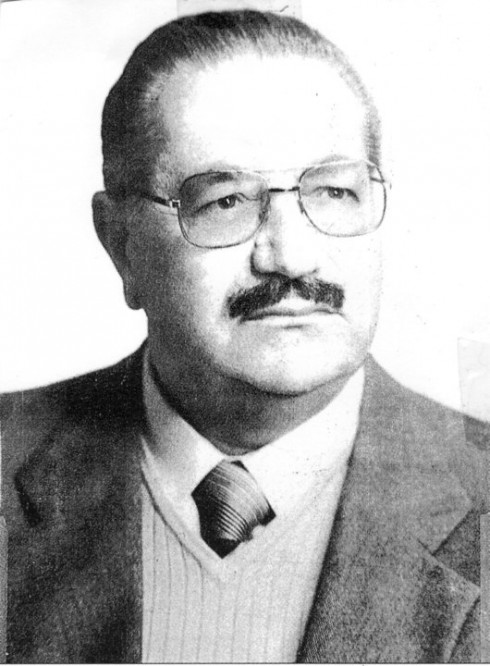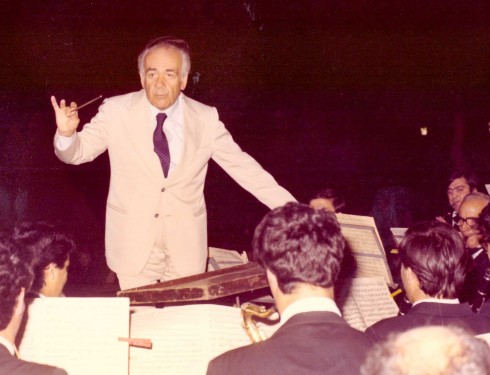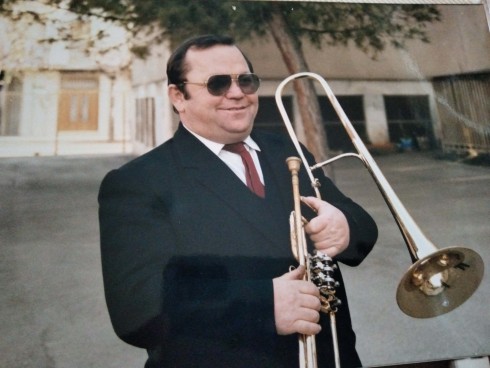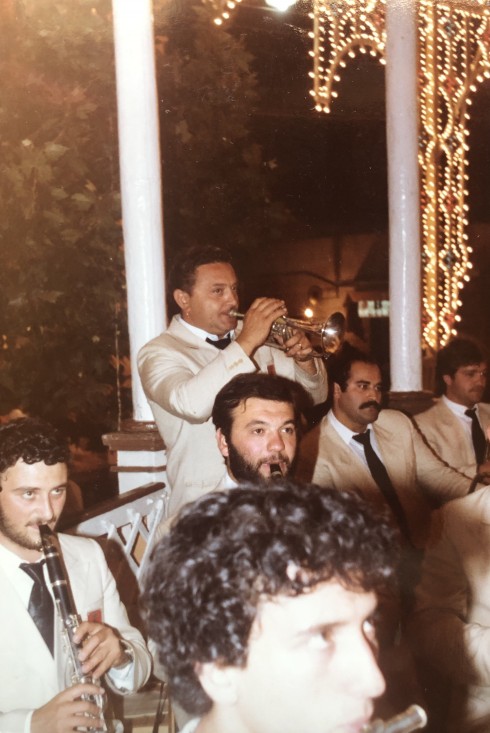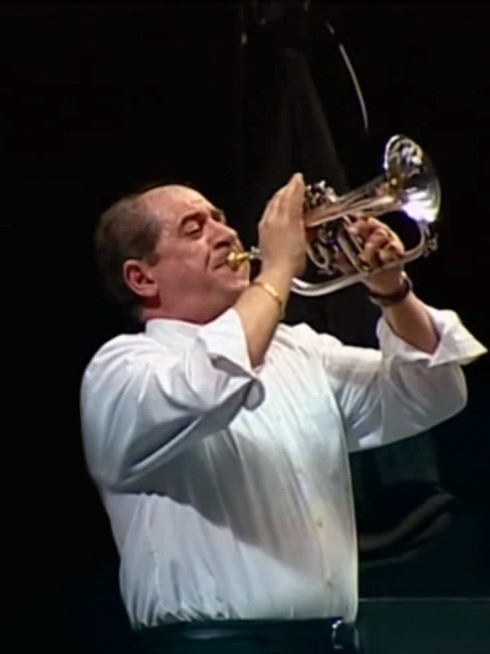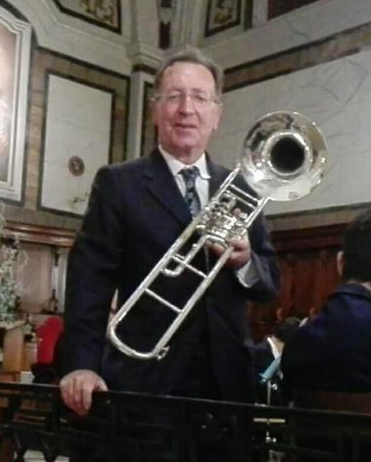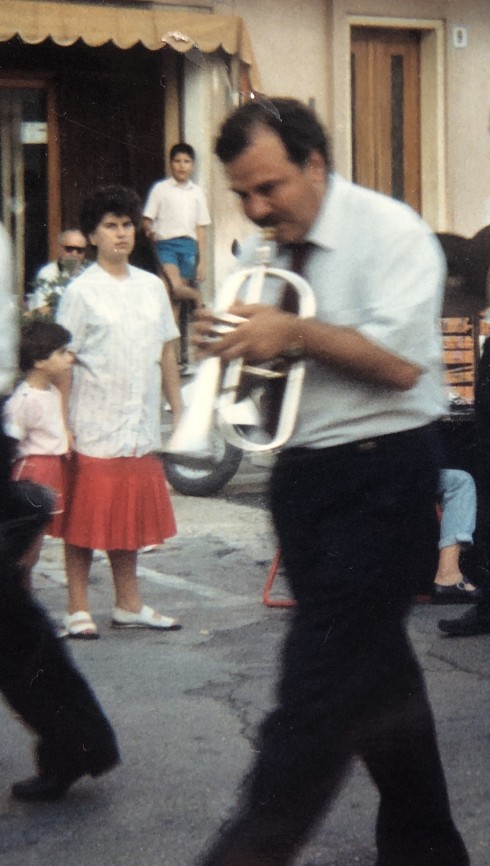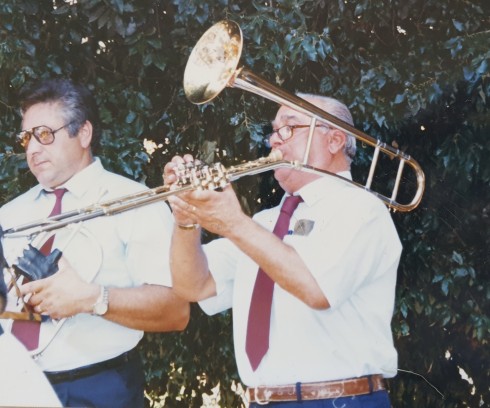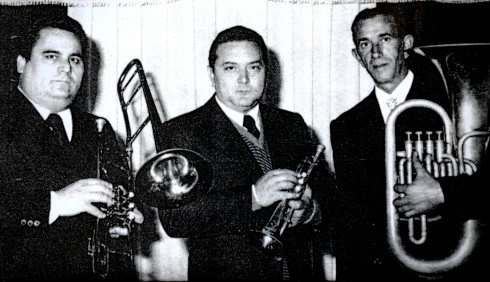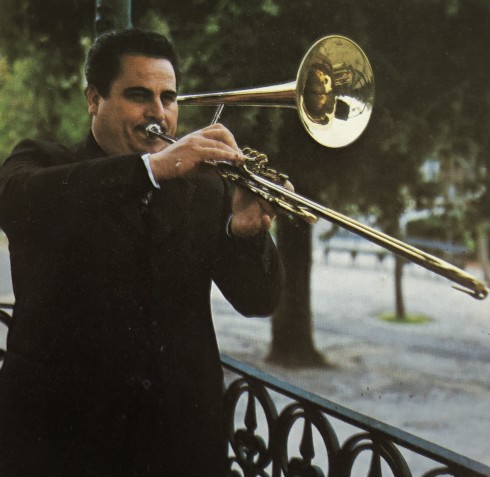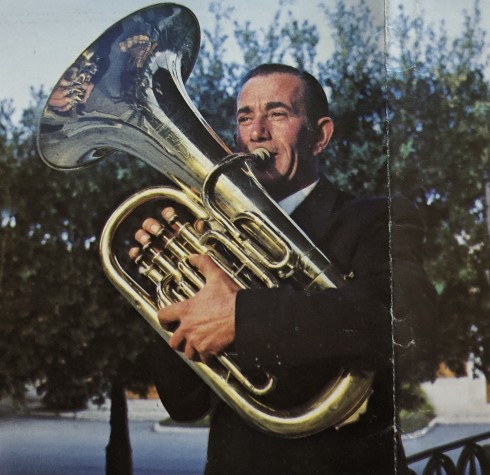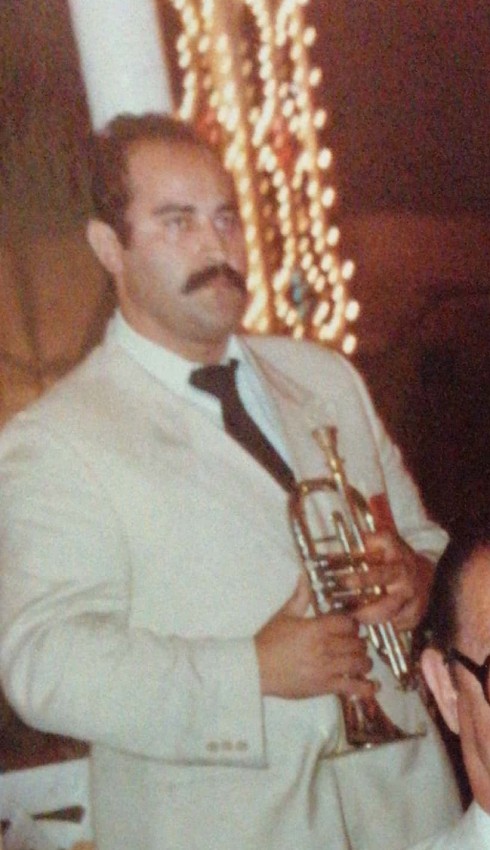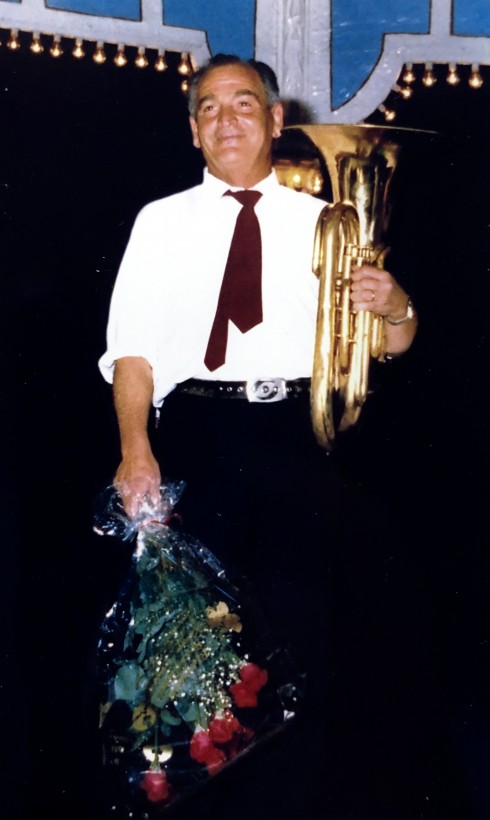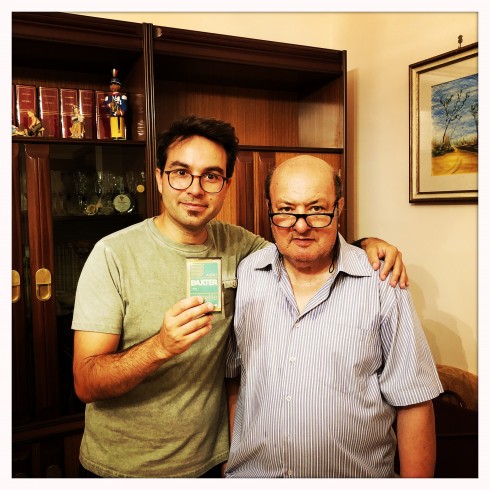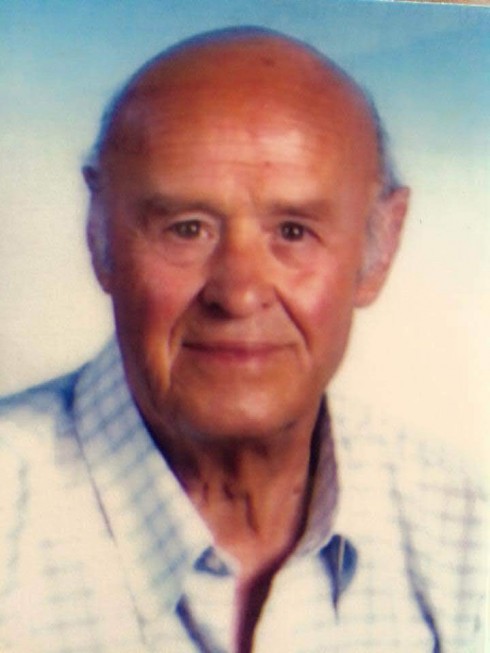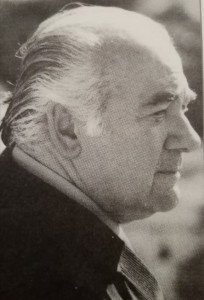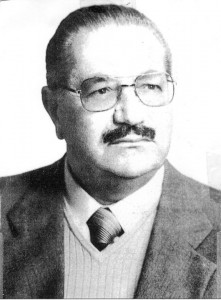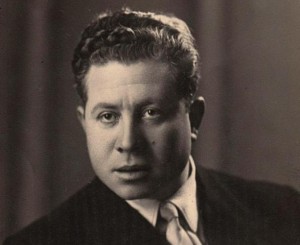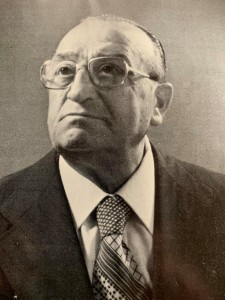Title: Lost Tapes Vol. 10 Vincenzo Ciliberti
Musiciens: Vincenzo Ciliberti, Cataldo Maggiulli, Caltaldo Valerio and more
Years: 1976/1992 © 2022
Graphic: 3Heads Agency
Text: Pierfrancesco Galati
Translator: Mariangela Iovino
Recorders: Mimmo Fiore, Aldino Miceli
Discover, digitalization, sound track selection, editing: Livio Minafra
Mastering and restoration sound engineer: Gianluca Caterina
Label: Angapp Music – It
Produced by: Livio Minafra
Financed by: Livio Minafra, Pino Minafra and Vincenzo Ciliberti
Vincenzo Ciliberti was born on 14 April 1941 in Ruvo di Puglia. His interest in music did not escape the attention of his parents, best of all his father Michele, a sestino player, to wit, the little clarinet in A ♭, who decided to enroll little Vincenzo at the town’s music school. The Ruvo di Puglia music school, led since the 1920s by the masters Antonio and Alessandro Amenduni (authors of heart-wrenching funeral pages performed during Holy Week), has always been an incredible nursery of musicians.
After having cut his teeth and having reached a satisfactory musical level, in 1956 his father let him in as second trumpet in B ♭ in the Banda di Bari under the baton of maestro Gennaro Esposito and his daughter Lina. The Bari seasons were the springboard for the young Vincenzo, who in 1957 joined in with the Gran Concerto Bandistico Città di Corato, led by Raffaele Miglietta. The first Coratina experience lasted for Ciliberti until September 1962, when he was enlisted in the Air Force, being part of the banda directed by the master colonel Alberto Di Miniello; After leaving on February 14, 1964, he was again hired as a flugelhorn soloist by the Banda di Corato with maestro Miglietta: he thus abandoned the world of military bands for good, to enter and live his experience in the tour bands as a protagonist. The Corato experience went on until 1966, and then to move the following year to the Banda di Trani under the direction of maestro Amerigo Piccione.
His, by that time, unquestionable qualities were by now known among the insiders, to the point that in 1968 he surrendered to the flattery of maestro Michele Marvulli, pianist, conductor and right-hand man of Nino Rota at the Piccinni Conservatory of Bari, who wanted Vincenzo with him in the renowned Banda di Gioia del Colle. The years spent in Gioia del Colle were years of growth and learning for Ciliberti, who appreciated, and not a little, the pedagogical qualities of Marvulli, who used to explain thoroughly, on the piano, just to the soloists, the arias that were being performed.
Marvulli still remembers today: “Ciliberti was a great soloist; he was someone who studied … he learned the modulation of the voice and above all he always wanted to know. More than an instrument it was a human voice !! “. Great phrasing, warm, refined voice, were in fact the peculiarities of Vincenzo Ciliberti’s sound with his memorable performances that we can finally listen to again.
Marvulli and Ciliberti stayed in Gioia for three consecutive years, writing fascinating pages of the historic banda. In 1971, after Marvulli’s farewell, Ciliberti, too, left Gioia del Colle, to arrive in Martina Franca, in the local banda team, which was sponsored by the famous “Mondial” textile enterprise, where he found the maestro Alberto Di Miniello, now retired. He remained in Martina Franca the following year as well, but with the master Antonio Reino.
From 1973 to 1977 Vincenzo Ciliberti established a new and strong artistic relationship with the Banda di Gioia del Colle, then led by Pietro Marmino, who, as a young man, revealed himself, together with Giuseppe Chielli, one of the best students of the master Giuseppe Piantoni, deus ex machina and famous director of the historic Banda di Conversano. For the record, it must be said that, in the interval of one artistic season and another, Ciliberti was also part of the “Petruzzelli” Theater Orchestra of Bari, in the performances of Turandot, Aida, Don Carlos and Bohème.
The future stages of our Vincenzo touched the cities of Lecce and Conversano, under the direction of the great Nicola Centofanti. From 1980 to 1982 he was concert flugelhorn in the Banda di Francavilla Fontana, directed by maestro Miglietta, and with him there were Cataldo Valerio, on tenor flugelhorn, and Cataldo Maggiulli, on baritone flugelhorn. The partnership between Ciliberti, maestro Miglietta and the other aforementioned soloists also continued in the Banda di Trani in the five-year period 1983-1987, and also when Nino Farì, in 1987, wanted him together with maestro Miglietta, as well as Valerio and Maggiulli, to be the spearheads of the resurgent “Concerto Bandistico Schipa-D’Ascoli Città di Lecce”. The artistic relationship with Miglietta continued the following year again in Lecce, and finally concluded in Bisceglie in the years 1989 and 1990.
In 1991, we find him again in Conversano, at the helm of a second banda born in the city, under the direction of Nicola Centofanti, who, the following season passed on the torch to the great Gioacchino Ligonzo… finally love blossomed between our Ciliberti and Ligonzo!! Ciliberti and Ligonzo, were also confirmed for the 1993 artistic season, which unfortunately did not see the presence of the master on the podium, as he died in November 1992. The disappearance of the master left a great void among banda fans and admirers, but above all, it left the organizers unprepared, since posters and brochures had already been developed, portraying the photo of the master Ligonzo, to be exhibited during the festival of Adelfia in honor of San Trifone [St. Triphon] on 10 and 11 November (showcase festival for Puglia [Apulia] and not only, in which the Bandas parade and show up for the following season).
It was therefore in 1993 that the banda passed into the hands of the newcomer Angelo Schirinzi and, although not listed on the posters, from that year the banda took the name of “Gioacchino Ligonzo”. Under the direction of Schirinzi, Ciliberti played until 1998, and then landed in Gravina di Puglia, leading the local banda with the masters Antonio Florindo Pizzoleo and Barbara Albani in the artistic seasons 1999 and 2000. The following years he moved to Giovinazzo and Corato, under the direction of the young and promising Giovanni Minafra, in 2001 and 2002, and then returned to Giovinazzo in 2003 with Giuseppe De Michele. Just in Giovinazzo, Ciliberti closed his career as a valid and acclaimed concert performer. He was 63 years old. Ciliberti died in 2023.
Vincenzo Ciliberti Banda seasons:
1956 Bari M° Gennaro Esposito
1957-1962 Corato M° Raffaele Miglietta
1963-1964 Banda dell’Aeronautica Militare di Roma M° Alberto Di Miniello
1964-1966 Corato M° Raffaele Miglietta
1967 Trani M° Amerigo Piccione
1968-1970 Gioia del Colle M° Michele Marvulli
1971 Martina Franca “Mondial” M° Alberto Di Miniello
1972 Martina Franca “Mondial” M° Antonio Reino
1973-1977 Gioia del Colle M° Pietro Marmino
1978 Lecce “Schipa- D’Ascoli” M° Nicola Centofanti
1979 Conversano M° Nicola Centofanti
1980-1982 Francavilla Fontana M° Raffaele Miglietta
1983-1986 Trani M° Raffele Miglietta
1987-1988 Lecce “Schipa- D’Ascoli” M° Raffaele Miglietta
1989-1990 Bisceglie M° Raffaele Miglietta
1991 Conversano M° Nicola Centofanti
1992 Conversano M° Gioacchino Ligonzo
1993-1998 Conversano M° Angelo Schirinzi
1999 Gravina di Puglia M° Antonio Florindo Pizzoleo
2000 Gravina di Puglia M° Barbara Albani
2001 Giovinazzo M° Giovanni Minafra
2002 Corato M° Giovanni Minafra
2003 Giovinazzo M° Giuseppe De Michele
Instruments legend:
| Flicorno Sopranino Concertista
o Flicornino (sopranino flugelhorn) |
Flicorno Soprano
(soprano flugelhorn) |
Trombone Tenore
(tenor flugelhorn) |
Flicorno Baritono
o Bombardino (baritone flugelhorn) |
| Vincenzo Ciliberti | Francesco Fusco | Cataldo Valerio | Cataldo Maggiulli |
| Vincenzo Bucci | Emanuele De Gennaro | Franco Eleuterio | Agostino Campanale |
| Antonio Fracchiolla | Franco Leo | Giuseppe Palumbo |

 English
English Italiano
Italiano